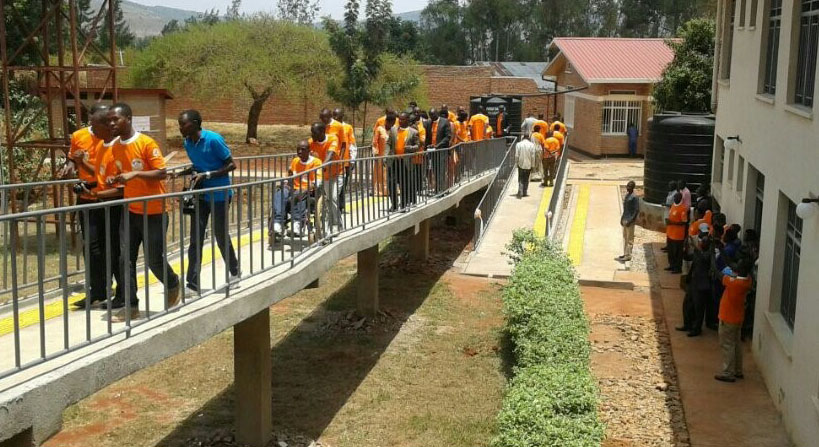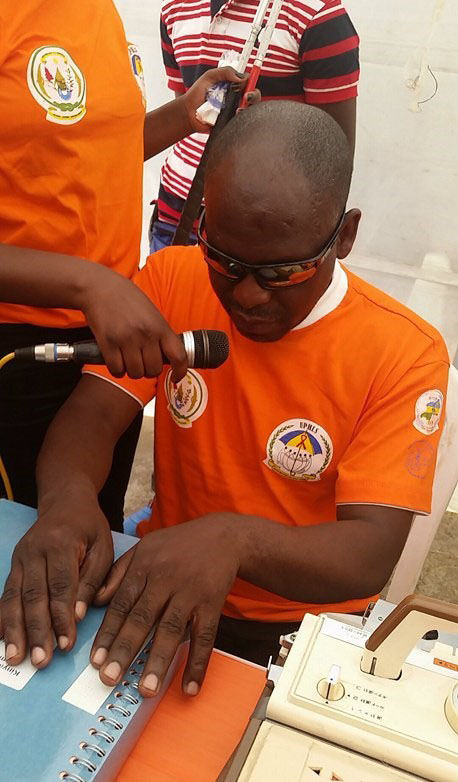Project for HIV/AIDS Prevention and Care Services for People with Disabilities: The UPHLS Story
By CDC Rwanda Team

UPHLS members and partners use a newly renovated access ramp at a health facility in Rwanda. This is one of several health facilities renovated for easier access by HIV/AIDS patients with disabilities. (Photo: CDC Rwanda)

A man reads out HIV/AIDS information written in Braille. (Photo Courtesy of UPHLS)
On December 23, 2016, the Umbrella of Organizations of Persons with Disabilities in the Fight against HIV and AIDS and in Health Promotion (UPHLS) celebrated its 10-year anniversary. UPHLS is a local Rwandan nongovernmental organization set up to promote the rights and inclusion of people with impairments (whether they be physical, sensory, mental, or intellectual) in the national HIV response and in health promotion. For 10 years now, UPHLS has worked to empower organizations that work with and/or represent Persons with Disabilities (PWDs) across Rwanda to engage in promoting an inclusive, effective, and sustainable country HIV/AIDS response and health system. UPHLS is ultimately working to achieve its vision of “a society free of HIV/AIDS, in which PWD are meaningfully involved in the HIV/AIDS response.”
Since 2014, CDC Rwanda, through the U.S. President’s Emergency Plan for AIDS Relief (PEPFAR) funding, has been supporting UPHLS on a project dubbed “Local Nongovernmental Partnerships for Sustained Leadership in Rwanda.”
Watch the UPHLS documentary titled “Project for HIV/AIDS Prevention and Care Services for Persons with Disabilities” to find out more about UPHLS’s incredible 10-year journey. To get your copy of the documentary, call UPHLS at (+250) 788 344 552, email infos@uphls.org, or visit the UPHLS website at http://www.uphls.org/.
NOTE: Funding for this UPHLS documentary was made possible in part by the Centers for Disease Control and Prevention. The views expressed in the documentary and by speakers and moderators do not necessarily reflect the official policies of the U.S. Department of Health and Human Services, nor does the mention of trade names, commercial practices, or organizations imply endorsement by the U.S. Government.’’